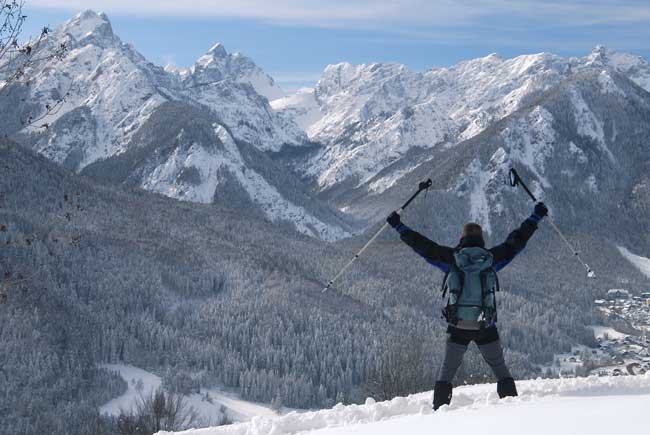
 Whenever I mention what I do for a living, the response is usually the same: “Oh, I’d love to be a travel writer!”
Whenever I mention what I do for a living, the response is usually the same: “Oh, I’d love to be a travel writer!”
Travel writing is indeed a unique career. I’ve been able to visit destinations all over the world. Travel is not just what I do, it’s become a way of life, a way of thinking.
My home is not just the country where I was born, but many places around the globe that I have come to love. Best of all, I have friends of diverse backgrounds, religions and nationalities.
You’ll never get rich as a travel writer — in fact, it’s one of the lowest paid forms of journalism. But there is a lot more to life than money.
How Do You Become a Travel Writer?
One of the questions I’m often asked is how to become a travel writer. Like any career, travel writing takes learned and practiced skills, hard work and persistence.
I’m told that experience is the best teacher, and looking back at my life, I guess that’s true.
I worked as a freelance journalist for many years before taking a travel writing workshop with a well-respected travel journalist.
Although I got my start as a travel writer at that workshop years ago, the school of hard knocks was my real teacher.
 That initial workshop taught me the basic skills of travel writing, and that helped me understand how to grow.
That initial workshop taught me the basic skills of travel writing, and that helped me understand how to grow.
I started reading other travel writers, sent out queries, got rejections and then sent out some more. All this time, I just kept writing and writing.
Some of my attempts failed miserably, but over time, I began to have a few successes. Eventually, the stack of publications that had published my travel writing work grew taller in the office corner.
I’m still learning and growing — it’s a must in this field — but I’ve learned a few tricks of the trade. Here are seven things you should know about travel writing:
-
Becoming a Travel Writer Will Change the Way You Travel
When you travel knowing that you will write about what you see, it opens your eyes in a new way.
You notice more detail — the way people speak, the architecture, and the local cuisine — and this brings an added dimension of travel enjoyment.
Now, even when I’m not traveling on assignment, I notice these precious details. In fact, I seek them out.
One of my favorite ways to learn about a destination, for example, is to peruse the local grocery establishment. When I was in Kauai recently, I stopped by the Walmart.
I found half an aisle devoted to different kinds of Spam (Hawaiians love their Spam), another aisle full of snorkel gear, boogie boards and surfboards, and a refrigerated display filled with flower leis.
Who knew that Walmart could provide a window into the Hawaiian soul?

-
The Business of Travel Writing Has Its Own Rules
Like most professions, travel writing has its own rules, norms and standards. If you don’t understand how the business works, then you won’t get far.
Take the time to understand the query and pitching process, and be sure to pitch outlets appropriate for your work.
Be sure you understand the working relationship that travel writers often need to have with tourism destinations, resorts and other travel partners. Talk to other writers, attend workshops or conferences and research travel markets.
The better you understand the business, the more success you will have. Read more on the business of travel writing.
Social media is a huge part of work as a travel writer. Follow other travel bloggers, journalists and influencers. Watch and learn.
What is their angle or unique voice? How do they cover a destination and how do they engage with their followers?
-
Take Good Notes
Very few of us have perfect memories. (I’m certainly not one of them!) Be sure you record the most important details of your journey, as well as tiny observations.
Keep good notes. I like to keep a little notepad with me to jot things down. I have other friends who take video with their phones, or even keep a little recorder handy.
Some writers keep a daily journal, which is an enjoyable way to record your thoughts. Others take photos and videos.
Include the specifics — the sights, the smells, the sounds and even the people you meet — in your notes. These details will help your story come alive.
-
Learn from Others
Want to become a better travel writer? Read other writers. Go to the book store and pour over the travel books and magazines.
What destinations do they cover? What is their normal format? Who are they writing for?
Personally, my favorite type of travel writing is the travel essay, an introspective and very personal form of writing.
There are numerous books that carry collections of travel essays. Each year, I devour the “Best American Travel Writing” series. Or check out my travel anthology series, including A Pink Suitcase: 22 Tales of Women’s Travel.
Take an in-depth look at these pieces. How do the writers set up the story? What descriptive skills do they use? What can you learn from them that you can include in your own writing?

- Take Good Photos
As an editor at Go World Travel Magazine, I spend a lot of time wading through submissions in our slush pile.
Since our site is very visual, photography is often as important as the story — and it’s one of the first things we consider when we look at a submission.
Many destinations provide free photography for press usage, and we often those. But you shouldn’t rely on PR photos to sell your story.
At Go World Travel, we cover many unusual destinations, and stock or press photos aren’t available. If you can’t provide photos to accompany your winery tour in Bulgaria, then chances are, we can’t run your story.
You don’t have to be a professional to take nice photos. Today’s cameras and editing software can do most of the work.
Take an afternoon class on basic photography and you should be able to shoot basic photos that will compliment your work.
-
Please Don’t Quit Your Day Job — Yet
For most travel writers, travel writing will not be a sole source of income. Travel writing works better as a co-career along with a flexible, but reliable profession.
Several of my travel writing friends also write in other fields. For example, one friend writes grants for a non-profit, another covers health articles.
Being on staff at a travel publication is an excellent way to obtain steady income in travel writing, but like most 9 to 5 jobs, this can also restrict your travel.
Another option is to find an internationally marketable skill that can be done overseas, such as bar tending, teaching English or working in a sports field like diving or skiing.
Then you can live abroad, and write on that country from abroad.
-
Don’t Get Left Behind
The field of travel writing has changed a lot in the last decade, and it continues to evolve with the times.
Not long ago, most travel writers saw their work published in print. Today, online publishing is much more common.
If you haven’t learned how to write for online publication (short and sweet, using SEO-friendly keywords), then you might be left behind.
For today’s travel writers, an online presence is a must. Do you have a blog or website? Editors want to see your website or at least emailed clips to your work, not mailed photocopies.
Having your own blog, being able to reach out to editors on Twitter or other social media platforms and promoting your work through social media are excellent ways to stay ahead of the game.
Author Bio: Janna Graber has been a travel journalist, editor and video producer for more than 15 years. She is the editor of the World Traveler Tales anthology series and managing editor at Go World Travel Magazine.
- How to Plan a Family Vacation in the Outer Banks - April 5, 2024
- Top 5 Colorado Mountain Towns in Summer - March 22, 2024
- The Magic of the Mekong Delta: From Vietnam to Cambodia by River Cruise - March 6, 2024

I’m looking for feedback on my articles. I would like to find the right ‘fit’ to make my writing publishable, without turning into an ‘influencer’ one liner here is where you need to go eat, sleep, see type of article. Help is greatly appreciated.
http://www.jtfhub.com